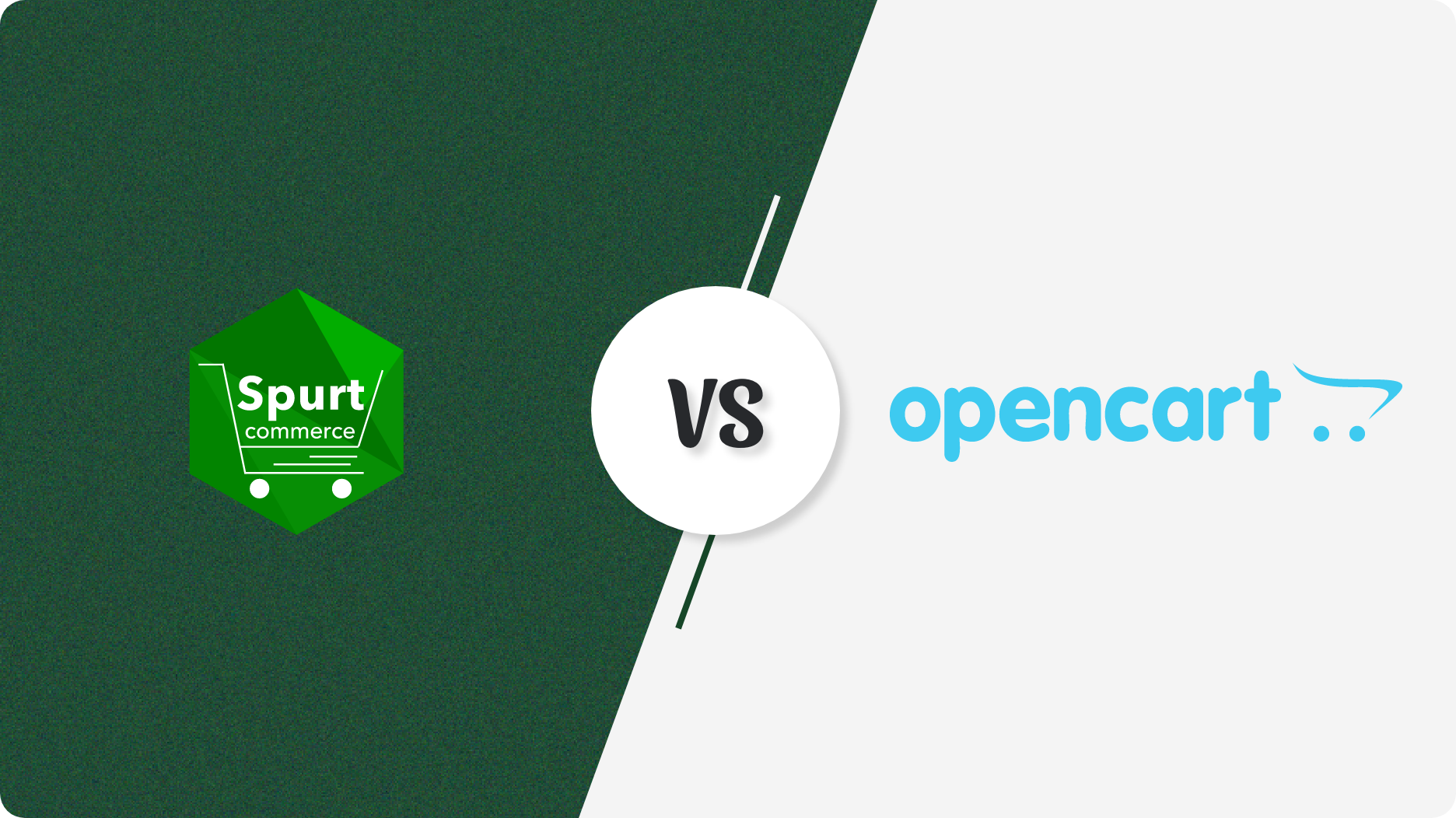COMPARISON
Spurtcommerce vs OpenCart

A Practical Comparison for Modern E-commerce Development
Overview
This comparison examines Spurtcommerce, a modern, JS-based e-commerce platform, against OpenCart, a traditional PHP system. While both can launch B2C storefronts,Spurtcommerce uniquely delivers built-in multi-vendor marketplace capabilities, mobile apps, and full code access. OpenCart requires extensions and custom development to achieve similar outcomes.
About Spurtcommerce
Spurtcommerce is a headless, API-driven e-commerce platform built on Node.js and Express.js. It offers both monolithic and microservices deployment options and provides production-ready storefronts in Angular, Next.js (React), and a Flutter mobile app. With built-in multi-vendor support, complete with seller panels and commission structures—it supports B2C shopping models out of the box. Spurtcommerce’s enterprise edition includes full access to the source code, including core modules and microservices, enabling complete customization and performance optimization.
Key B2C features include promotions, product variants, SEO tools, multilingual/multi- currency support, and widgets. Add-on-based extensions allow additional functionality like chat, support ticketing, and supplier management without altering core code.
About OpenCart
OpenCart is a PHP-based, monolithic e-commerce platform widely used for simple B2C stores. It offers default storefront and admin functions, with multi-vendor support available only through third-party extensions. It lacks official mobile app support, modern frontend frameworks, and requires additional plugins or development for advanced features.
Key Differences – Spurtcommerce vs OpenCart
| FEATURE | SPURTCOMMERCE | OpenCart |
|---|---|---|
| Tech Stack | Node.js + Express.js,Angular/React/Flutter frontends | PHP + Twig, legacy JS |
| Architecture | Headless, modular (monolithic/microservices) | Monolithic MVC |
| Frontends | Angular, React (Next.js) | Template themes only |
| Frontends | Angular, React (Next.js) | Template themes only |
| Mobile App | Flutter app (enterprise) | Custom or third-party |
| Marketplace Support | Native multi-vendor, seller panels, commission handling | Requires extensions |
| Admin & Seller Dashboards | Both included | Admin only; seller via extension |
| Functional Features | Catalog, promotions, SEO, multilingual etc. | Core catalog only; advanced via modules |
| Source Code | Full access with (backend & frontend) | Open-source core, but extensions are closed enterprise |
| Performance & Hosting | Lightweight, scalable, modern stack | Requires caching and tuning for scalability |
| Customization | JS-based Add-ons, no core hacks | Extensions and core overrides needed |
| Time to Market | Quick marketplace & mobile storefront readiness | Basic store quick; marketplace adds time/cost |
Spurtcommerce is ideal for:
- Teams building modern JS-based storefronts and mobile apps
- Businesses launching B2C marketplaces with built-in seller tools
- Projects requiring full source code access and headless architecture
- Companies that prefer Add-ons for flexible extensibility
OpenCart is ideal for:
- Small to mid-sized B2C stores on PHP
- Quick deployment needs with minimal custom features
- Users comfortable with marketplace extensions and maintenance
Why Choose Spurtcommerce Over OpenCart:
- Built-in marketplace: No need for unreliable third-party extensions
- Modern JS stack & mobile apps: Frontend and mobile included
- Full developer control: No hidden module limitations
- Faster and more scalable deployment: From storefront to microservices
Conclusion
Spurtcommerce offers a comprehensive, modern, marketplace-ready solution with full control and advanced features like mobile apps, positioning it well ahead of OpenCart, which can only achieve similar scope through add-ons and workarounds.



 En
En Es
Es Ar
Ar